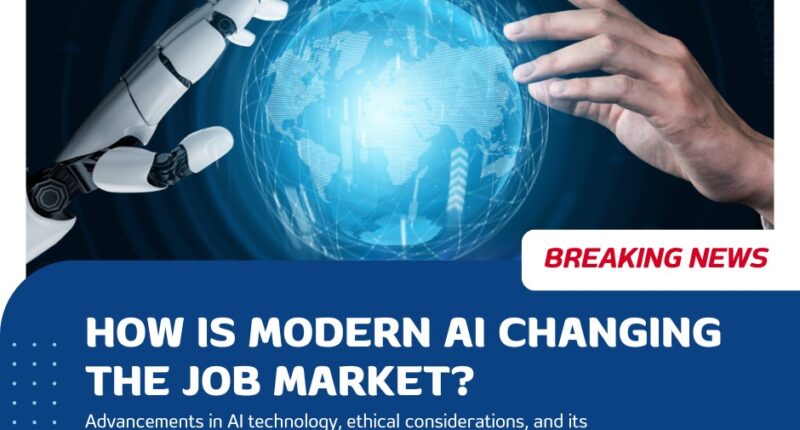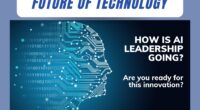How Is Modern AI Changing the Job Market?
Artificial intelligence (AI) is no longer a futuristic concept—it’s actively reshaping industries and the global workforce. From automating repetitive tasks to creating entirely new career paths, AI’s impact on the job market is profound. Understanding these changes can help professionals adapt and thrive in an evolving economy.
1. Automation Is Transforming Routine Tasks
AI excels at handling repetitive and time-consuming tasks. In manufacturing, robots assemble products with speed and precision. In finance, algorithms analyze vast datasets to detect fraud or forecast market trends. By automating these tasks, businesses reduce costs and improve efficiency.
The Shift in Skill Demand
While routine jobs may decline, there’s increasing demand for roles that require problem-solving, creativity, and emotional intelligence—skills AI cannot easily replicate. Workers who upskill in areas like critical thinking, data analysis, and AI literacy will remain competitive in the job market.
2. New Career Opportunities Are Emerging
AI is not just replacing jobs—it’s also creating new ones. Entirely new fields like AI ethics, machine learning engineering, and data science have surged in demand. Companies need professionals to design, maintain, and govern AI systems responsibly.
Examples of Growing Roles
- AI Trainers: Teach algorithms to recognize patterns or language.
- Ethical AI Specialists: Ensure fairness and transparency in AI decisions.
- Automation Consultants: Help businesses integrate AI solutions effectively.
3. Human-AI Collaboration Is Becoming the Norm
Rather than fully replacing workers, AI increasingly acts as a powerful assistant. In healthcare, AI tools analyze medical images, helping doctors make faster and more accurate diagnoses. In marketing, predictive analytics suggests customer preferences, while human creativity shapes campaigns.
Boosting Productivity and Innovation
AI allows employees to focus on higher-value activities, such as strategic planning and innovation. Companies that embrace human-AI collaboration can achieve greater productivity and remain competitive in fast-changing markets.
4. Reskilling and Lifelong Learning Are Essential
As AI adoption grows, employees must continually update their skills. Lifelong learning—through online courses, certifications, and professional development—is key to staying relevant. Educational institutions and employers are offering AI-focused training to prepare workers for the future.
Pro Tip: Stay Ahead of the Curve
Learning AI fundamentals, data analytics, and emerging technologies can help you pivot to in-demand roles. Adaptability and continuous learning are among the most valuable traits in today’s AI-driven job market.
5. Global Workforce Dynamics Are Shifting
AI-driven automation is influencing hiring practices worldwide. Companies can tap into global talent pools for specialized AI skills, while remote work technologies powered by AI make cross-border collaboration easier. However, these shifts also raise questions about wage disparities and access to opportunities.
Conclusion
Modern AI is reshaping the job market by automating tasks, creating new roles, encouraging human-AI collaboration, and demanding lifelong learning. While some jobs are being transformed or replaced, countless opportunities are emerging for those who adapt. By staying informed and upskilling strategically, professionals can thrive in the age of AI.








